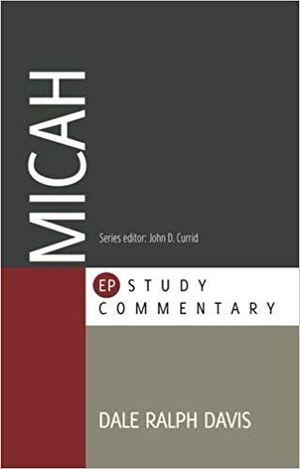How many churches have recently heard a series or even a sermon drawn from the prophet Micah? How many Christians would recognise even the better known phrases of the man of Moresheth? He lurks among other prophets quickly overlooked as ‘minor’, rarely touched and probably little understood.
Dale Ralph Davis redresses the balance somewhat in this excellent commentary. Beginning with a devastating illustration that leaves the liberal critic looking a little foolish, and providing an overview of the whole book, he then guides us through the three main sections – through judgement to preservation, through judgement to peace, and through judgement to pardon.
Under each section shorter elements are supplied in the author’s own vivid and illuminating translation, discussed briefly, and then pointedly and movingly applied to the church of Christ today.
The author’s ability and readiness to cut to the chase is welcome. He is clearly abreast of other material old and new, and gives us a swift and sure assessment of various interpretive issues, leaving us with little (or significantly reduced) doubt as to the Spirit’s probable intended meaning.
Indeed, so surefooted and definite is the writer that there is a significant danger of simply being carried along and allowing him to do all the work for us. Micah’s messianic focus is made to shine brightly at appropriate points, and equally plain throughout is the Lord’s holy hatred of sin.
Those who have previously used and enjoyed the author’s commentaries on other Old Testament books will need little persuading to take up and read this new offering. For any reader who has not yet had the pleasure of making his acquaintance, this would be a fine place to start, and they may find themselves wondering how Micah so quickly yields up treasures they have never before appreciated.
I should imagine that many gospel ministers (who might otherwise not have touched this prophet with a reverent bargepole) will pick up this commentary and after a few pages surmise that there might be some sermons in Micah after all. If they make this book a tool to help them, and not merely a template to follow, then they will be right.




